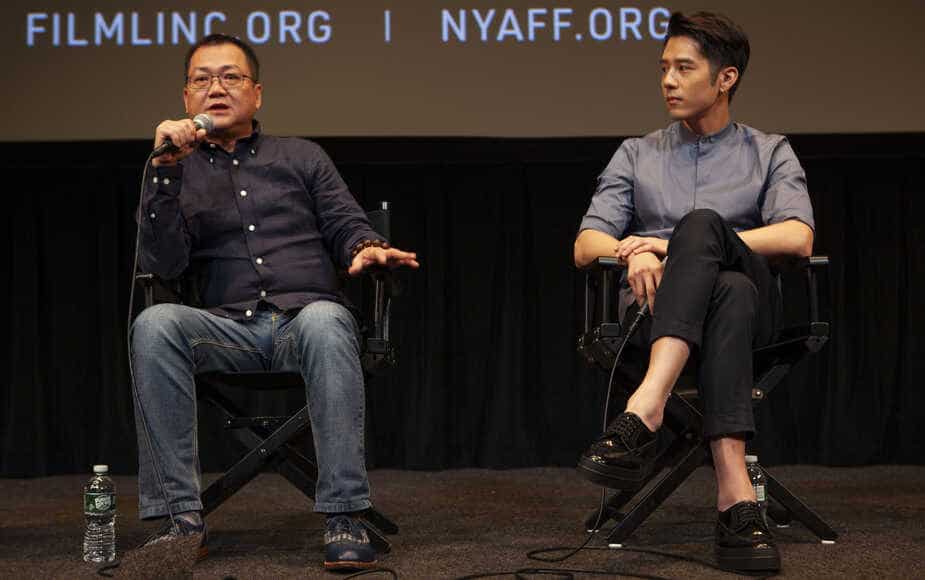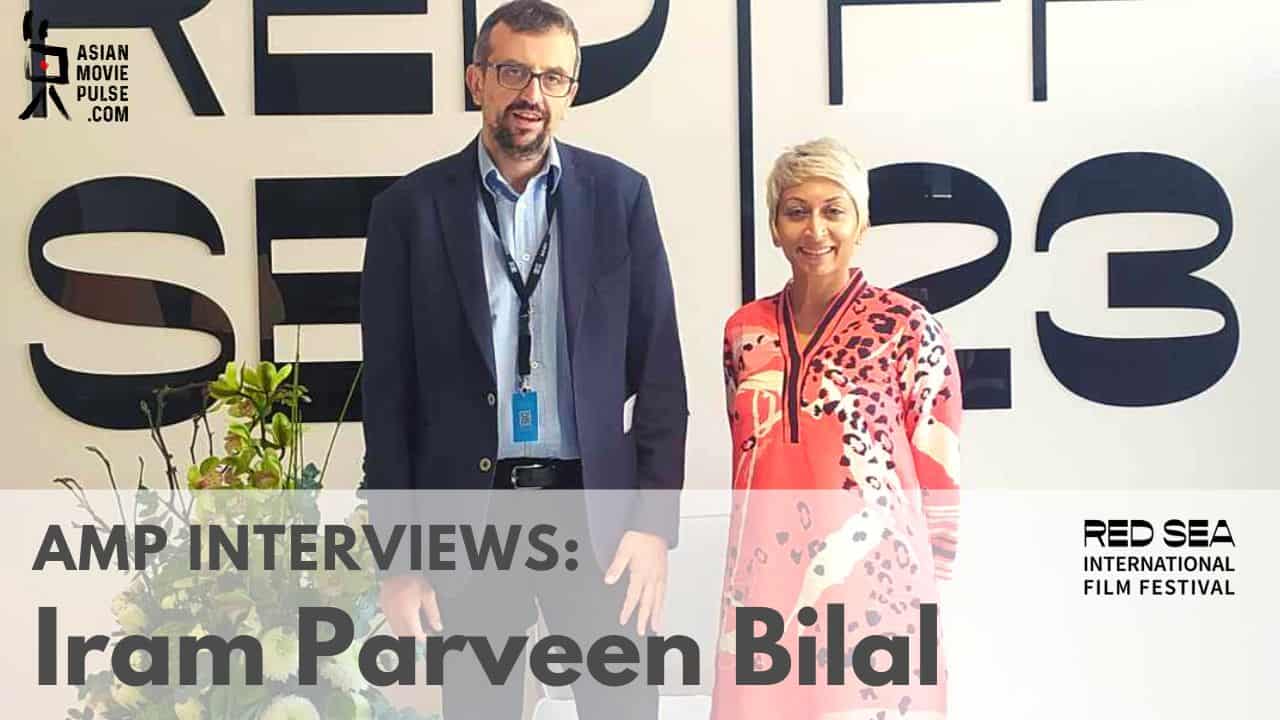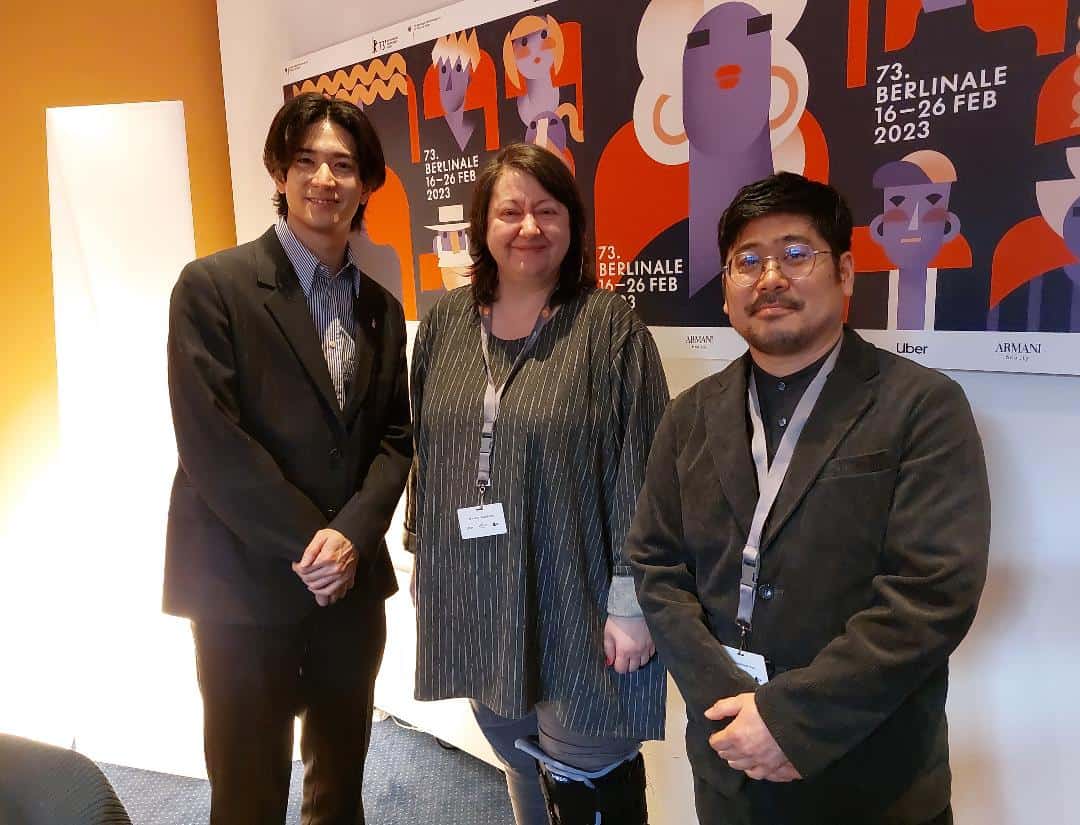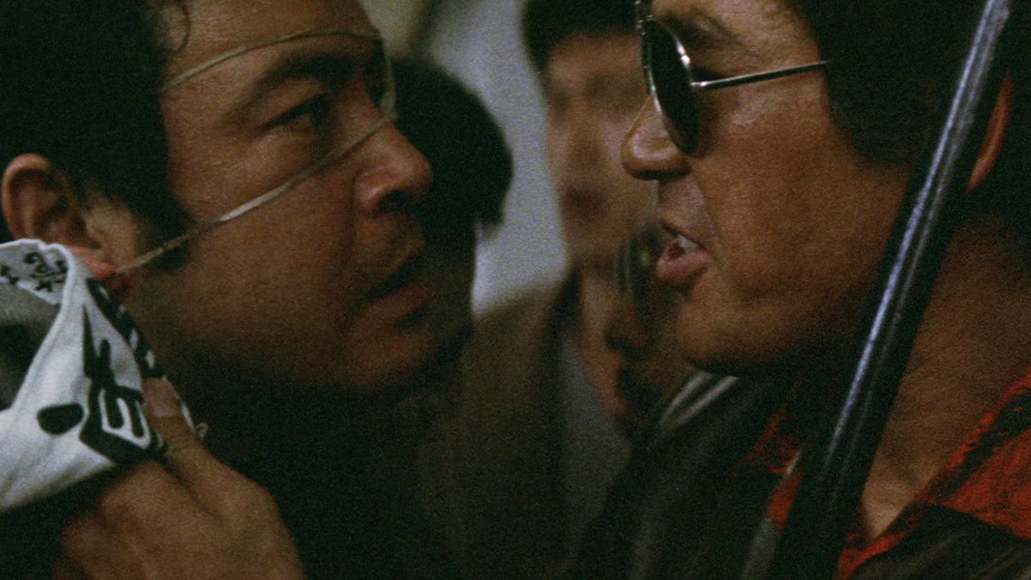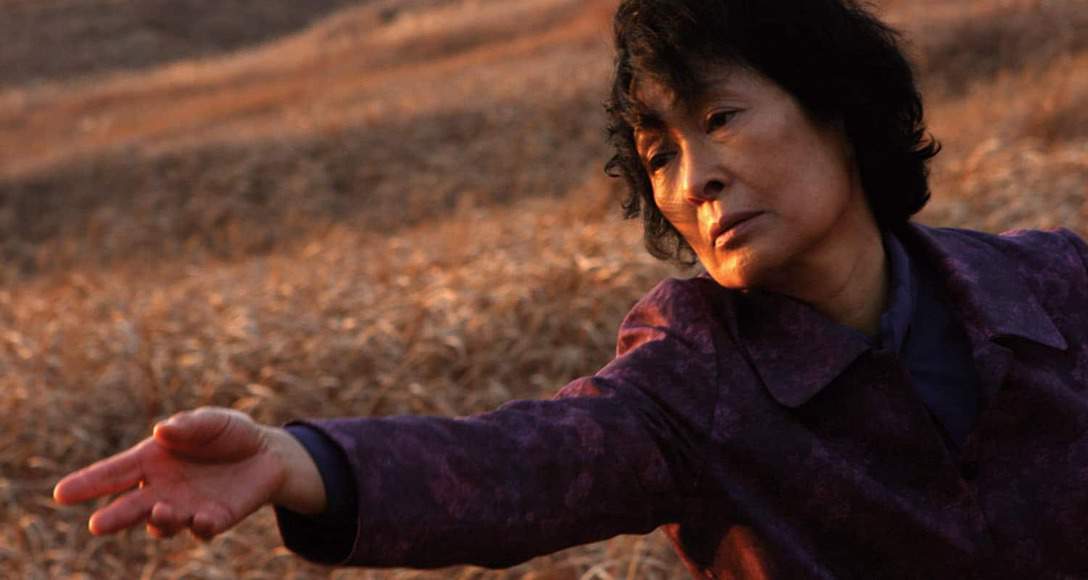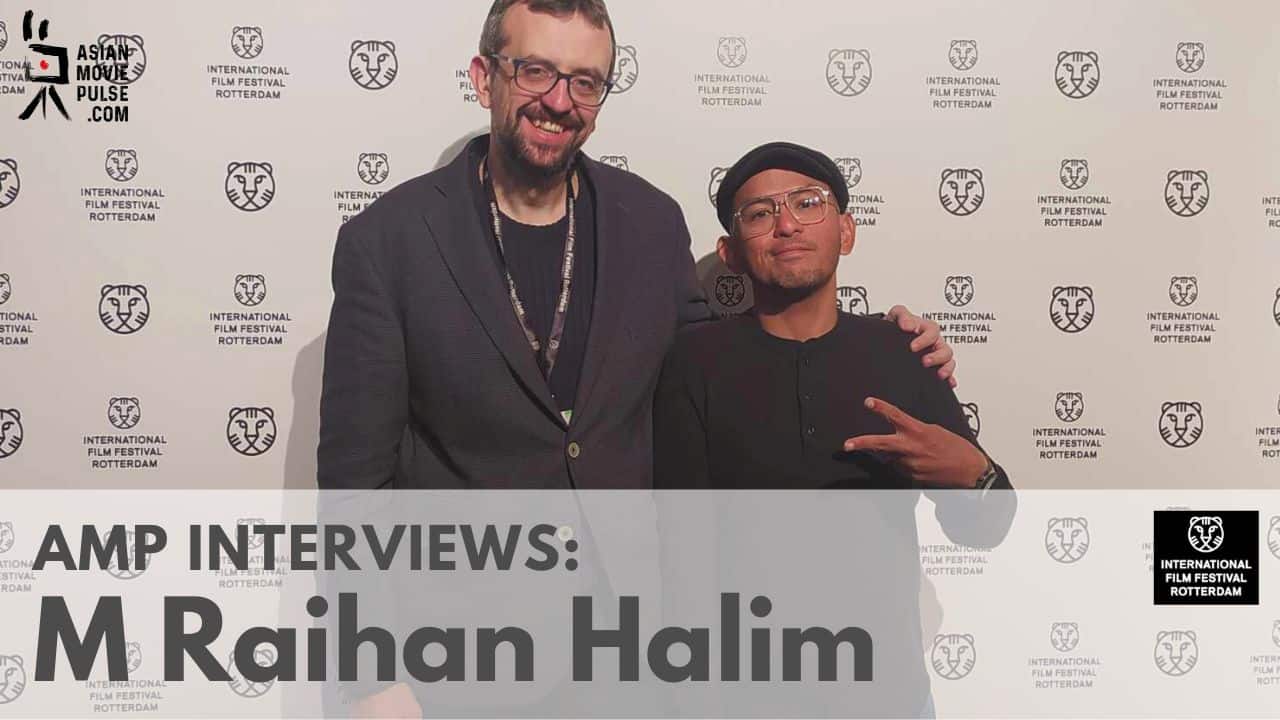Huang Chao-liang is one of Taiwan's most successful directors in recent years. His films, “Hanky Panky” and “The Wonderful Wedding” were both huge domestic box office hits. He is known for his artistic portrayal of everyday life in films that are both genuine and emotionally charged.
George Hu is an American-born actor and singer based in Taiwan. He made his film debut in 2014 with Where the Wind Settles” but he has been acting on TV since 2006.
On the occasion of their film, “Han Dan” screening at New York Asian Film Festival, we talked with the director and the protagonist to talk about the Han Dan ritual, the firecrackers in the movie, male friendship and many other topics.
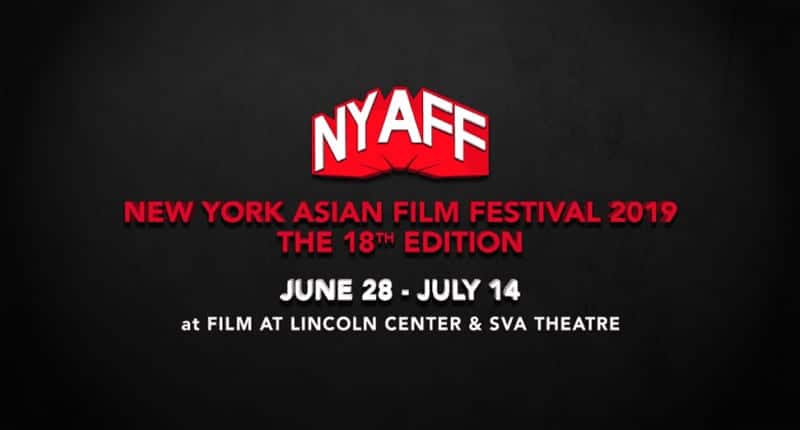
Why did you decide to shoot a movie about the particular ritual and can you give us some more details about its practice in nowadays Taiwan?
I was born in Taitung, so this is very much a ritual of my city. When I was a very young kid, I always wondered, when I was looking up and watching these men having explosives thrown at them, what was in their minds, in their brains, what were they thinking. Therefore, when I started making films for television, I was very interested to see whether I could make this into a film, because it is visually so arresting to see that ritual, the visual images are very very striking and then I also thought that there must be some amazing stories behind these people who are going up there. Therefore, we started six years ago and to begin with, we actually made a documentary about the Han Dan ritual. From there, we collected information, we collected stories, and that is how we came up with the film. As you can imagine, Taitung and Han Dan have become synonyms, it is actually one of the three most important rituals of the Lantern Festival which is the first full moon, the fifteenth day of the first month of the Lunar Year. Now, it has also become a tourist attraction.
Can you give us some details regarding the way you cooperated with cinematographers Yan Rymsha and Chao Chung-wang, particularly on the firecracker scenes?
Digital cameras cannot capture these moments of the explosives, particularly multiple moments, so we had to resort to computer graphics to create those images. There are four scenes of the actual Han Dan ritual in which we had to have very detailed, moment by moment analysis layout. We went about it as if it was a comic strip, getting it all together, using computer graphics. When we were shooting the firecrackers, we had to have serious choreography, of planning which angle of explosives comes from where and explodes and we also had to do some extra lighting to make sure that it balances out. We also did a lot of work in actual coloring.
I felt that the main focus of the movie is male friendship. What is your opinion on this concept?
Correct. This is a story about the love and hate relationship of these two men. It starts with middle school and the bullying, that is the beginning of everything that follows. In middle school, the bullying was just verbal, but the thing is you have the butterfly effect, and that eventually amplifies to something that is huge. Because, you can imagine what the ramifications are, I just want young people, when they see this film, and after they see this film, to think that a word a phrase or an action can actually have ramifications. Because sometimes you have to remember, that if you are bullying or hurting someone, in many ways you are hurting yourself.
The film also deals with organized crime. What is the situation with organized crime nowadays in Taiwan?
The triads are actually very harmonious, they are all making business. Maybe in the western world is different, but in Taiwan the idea of triads is that they have their own protection society, so this is a whole group of people getting together because they want to protect themselves. However, they do not deal with drugs or weapons. They are not really the mafia.
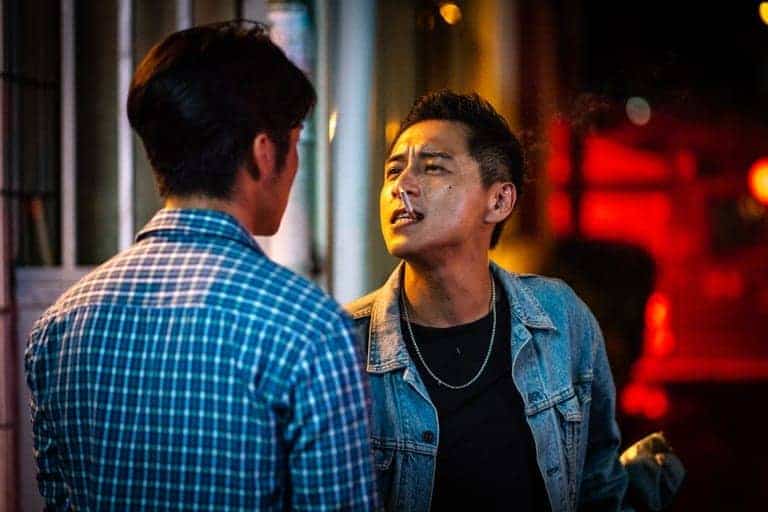
How was your cooperation with George Hu and Jen-Shuo-cheng?
It has been a very good working experience, and one thing is, I have worked with George for a number of years and I noticed that there is something about him that has not changed, it is how his eyes look. In the film, he is clearly the person who committed a very big mistake in Han Dan. However, the thing is he has to hide it and in acting, a lot of it has to go through his eyes. Jen Shuo-cheng encapsulates the persona of the heroic, strong spirit of a Taitung young man. Jen is very able to release, able to let it all go, because he has to be a daring character. They were both my first choices and I chose them right.
Mr Hu, how would you describe your character to someone who does not know him?
I read the script first and there was something about Lin Jen-kuen's character that really drew me, it came out and grabbed me by the throat. Because it was really something that I have not tried before and plus, it gave me an opportunity to change my appearance and my behaviour as well. Because I have done a lot of dramas before but nothing like that. This character is a whole new thing, something really fresh to me.
The storyline was very well written as well, and we worked with Hung Chao-liang before and I knew what he wanted. The last time we worked together was a whole different thing, because he is very open to new ideas now and in that way, it was easier for me to portray this character.

Why do you think he decides to help A-yi? Is it just guilt or something else?
Definitely a huge amount of guilt. There is a huge amount of guilt he had to bury for a long time, because he committed an act of murder and this was a cross he had to carry for a long time. He had to hide it from his family, his friends and his adversary, his bully. And what happens in the story, is that he actually becomes friends with his bully, he makes a pact with him and they become blood brothers. However, he always comes to the point where he thinks back that “it is because of you I am me now, it is because of you I got into this position, if it wasn't for you I would have had a bright future”. And this always brings him back to this huge amount of hate about this character.
However, their relationship is also about male friendship. What do you think about this concept?
This kind of brotherly friendship is very interesting, because there is love and hate at the same time. But it was more hate than love, because before all that love and friendship, it was about A-yi bullying Jen-kuen. On the other hand, It was because he got befriended by A-yi that he realized he is a down to earth person. Because if you are friends with him, he would stop at nothing to protect you. But still, the past would cause a lot of tension.
How difficult was the shooting of the ritual? Did you feel you were in danger at any point?
(laughter) Of course I was worried with the firecrackers coming towards your body, but it wasn't that bad, because we had precautions, like first aid and an ambulance on set. The firecrackers would jump all over the place, you would not know when they will hit you. At one moment, a firecracker hit my arm, if I remember correctly, it made me jump, but in a good way, because it allowed me to feel the pain more and helped me to get more into the character, how to be brave and courageous.
What is the situation for actors in the Taiwanese industry at the moment?
There is a lot of talent and a lot of roles out there, both for films and TV, so there is much variety. And it is getting better now, it is not just lovey dovey stuff, there are more films that deal with society nowadays.

Would you say that the fact you are also singer helped your career as an actor?
Definitely it gave me an advantage because I had music experience back in the day, I played violin, piano, guitar and it made me want to perform on stage, to get that feel.
After starring in a film like “Han Dan”, do you feel that you will search for more roles like that?
After this film, I proved to myself that I can perform these kind of roles, darker ones, because I always wanted to try such parts. Because before this part, I had some roles that touched the darker area, but they weren't as dark as this one. I want to explore such roles more and it gave me the courage to do so


